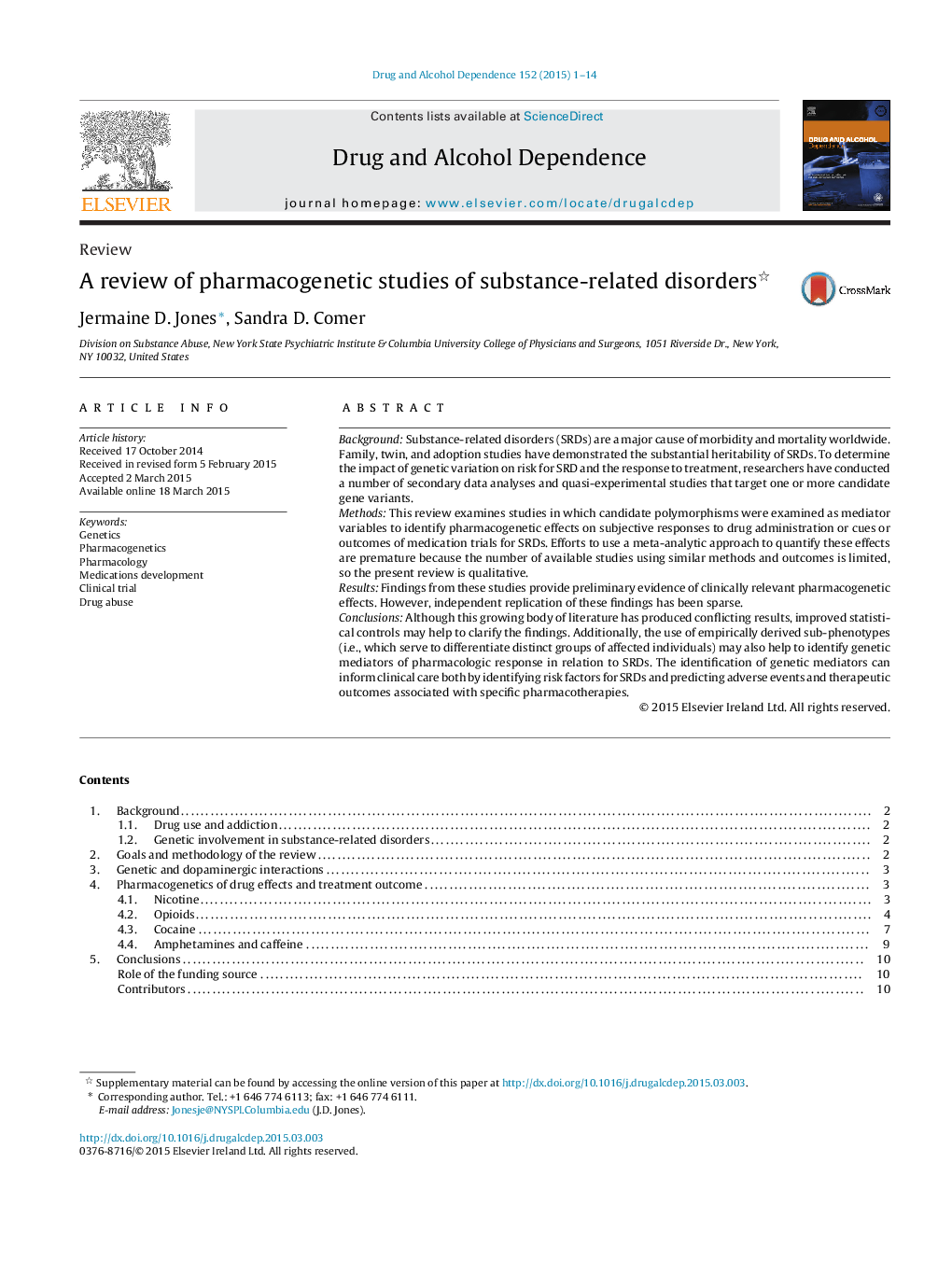| کد مقاله | کد نشریه | سال انتشار | مقاله انگلیسی | نسخه تمام متن |
|---|---|---|---|---|
| 1069762 | 1486139 | 2015 | 14 صفحه PDF | دانلود رایگان |
• We reviewed pharmacogenetic studies on drug subjective effects and medication trials.
• These studies provide evidence of clinically relevant pharmacogenetic effects.
• This body of literature has produced conflicting results that require resolution.
• More rigorous procedural and statistical controls may reduce false positives.
• Understanding genetic modulation may advance individualized Tx of drug use disorders.
BackgroundSubstance-related disorders (SRDs) are a major cause of morbidity and mortality worldwide. Family, twin, and adoption studies have demonstrated the substantial heritability of SRDs. To determine the impact of genetic variation on risk for SRD and the response to treatment, researchers have conducted a number of secondary data analyses and quasi-experimental studies that target one or more candidate gene variants.MethodsThis review examines studies in which candidate polymorphisms were examined as mediator variables to identify pharmacogenetic effects on subjective responses to drug administration or cues or outcomes of medication trials for SRDs. Efforts to use a meta-analytic approach to quantify these effects are premature because the number of available studies using similar methods and outcomes is limited, so the present review is qualitative.ResultsFindings from these studies provide preliminary evidence of clinically relevant pharmacogenetic effects. However, independent replication of these findings has been sparse.ConclusionsAlthough this growing body of literature has produced conflicting results, improved statistical controls may help to clarify the findings. Additionally, the use of empirically derived sub-phenotypes (i.e., which serve to differentiate distinct groups of affected individuals) may also help to identify genetic mediators of pharmacologic response in relation to SRDs. The identification of genetic mediators can inform clinical care both by identifying risk factors for SRDs and predicting adverse events and therapeutic outcomes associated with specific pharmacotherapies.
Journal: Drug and Alcohol Dependence - Volume 152, 1 July 2015, Pages 1–14
